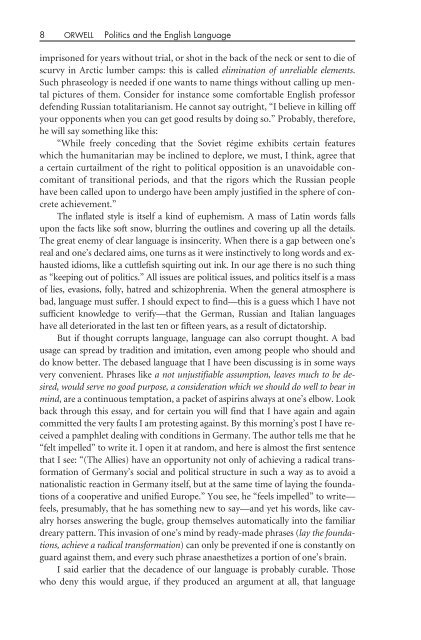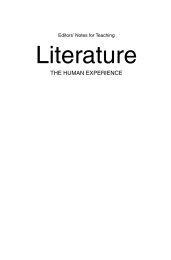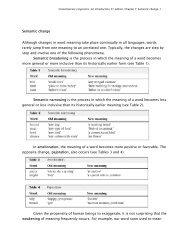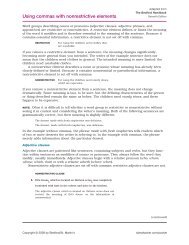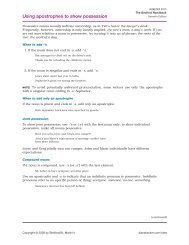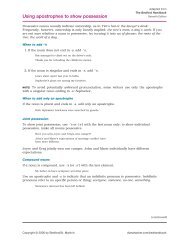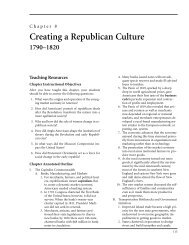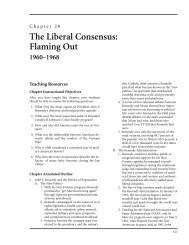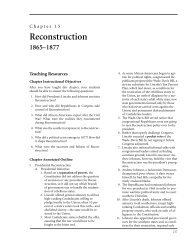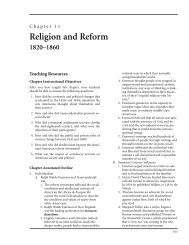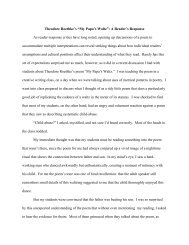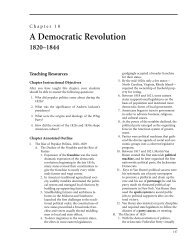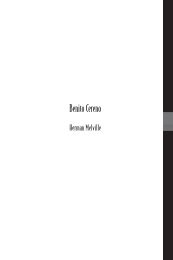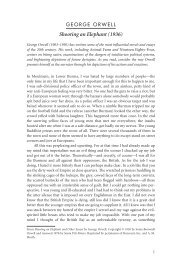GEORGE ORWELL, Politics and the English Language
GEORGE ORWELL, Politics and the English Language
GEORGE ORWELL, Politics and the English Language
You also want an ePaper? Increase the reach of your titles
YUMPU automatically turns print PDFs into web optimized ePapers that Google loves.
8 <strong>ORWELL</strong> <strong>Politics</strong> <strong>and</strong> <strong>the</strong> <strong>English</strong> <strong>Language</strong><br />
imprisoned for years without trial, or shot in <strong>the</strong> back of <strong>the</strong> neck or sent to die of<br />
scurvy in Arctic lumber camps: this is called elimination of unreliable elements.<br />
Such phraseology is needed if one wants to name things without calling up mental<br />
pictures of <strong>the</strong>m. Consider for instance some comfortable <strong>English</strong> professor<br />
defending Russian totalitarianism. He cannot say outright, “I believe in killing off<br />
your opponents when you can get good results by doing so.” Probably, <strong>the</strong>refore,<br />
he will say something like this:<br />
“While freely conceding that <strong>the</strong> Soviet régime exhibits certain features<br />
which <strong>the</strong> humanitarian may be inclined to deplore, we must, I think, agree that<br />
a certain curtailment of <strong>the</strong> right to political opposition is an unavoidable concomitant<br />
of transitional periods, <strong>and</strong> that <strong>the</strong> rigors which <strong>the</strong> Russian people<br />
have been called upon to undergo have been amply justified in <strong>the</strong> sphere of concrete<br />
achievement.”<br />
The inflated style is itself a kind of euphemism. A mass of Latin words falls<br />
upon <strong>the</strong> facts like soft snow, blurring <strong>the</strong> outlines <strong>and</strong> covering up all <strong>the</strong> details.<br />
The great enemy of clear language is insincerity. When <strong>the</strong>re is a gap between one’s<br />
real <strong>and</strong> one’s declared aims, one turns as it were instinctively to long words <strong>and</strong> exhausted<br />
idioms, like a cuttlefish squirting out ink. In our age <strong>the</strong>re is no such thing<br />
as “keeping out of politics.” All issues are political issues, <strong>and</strong> politics itself is a mass<br />
of lies, evasions, folly, hatred <strong>and</strong> schizophrenia. When <strong>the</strong> general atmosphere is<br />
bad, language must suffer. I should expect to find—this is a guess which I have not<br />
sufficient knowledge to verify—that <strong>the</strong> German, Russian <strong>and</strong> Italian languages<br />
have all deteriorated in <strong>the</strong> last ten or fifteen years, as a result of dictatorship.<br />
But if thought corrupts language, language can also corrupt thought. A bad<br />
usage can spread by tradition <strong>and</strong> imitation, even among people who should <strong>and</strong><br />
do know better. The debased language that I have been discussing is in some ways<br />
very convenient. Phrases like a not unjustifiable assumption, leaves much to be desired,<br />
would serve no good purpose, a consideration which we should do well to bear in<br />
mind, are a continuous temptation, a packet of aspirins always at one’s elbow. Look<br />
back through this essay, <strong>and</strong> for certain you will find that I have again <strong>and</strong> again<br />
committed <strong>the</strong> very faults I am protesting against. By this morning’s post I have received<br />
a pamphlet dealing with conditions in Germany. The author tells me that he<br />
“felt impelled” to write it. I open it at r<strong>and</strong>om, <strong>and</strong> here is almost <strong>the</strong> first sentence<br />
that I see: “(The Allies) have an opportunity not only of achieving a radical transformation<br />
of Germany’s social <strong>and</strong> political structure in such a way as to avoid a<br />
nationalistic reaction in Germany itself, but at <strong>the</strong> same time of laying <strong>the</strong> foundations<br />
of a cooperative <strong>and</strong> unified Europe.” You see, he “feels impelled” to write—<br />
feels, presumably, that he has something new to say—<strong>and</strong> yet his words, like cavalry<br />
horses answering <strong>the</strong> bugle, group <strong>the</strong>mselves automatically into <strong>the</strong> familiar<br />
dreary pattern. This invasion of one’s mind by ready-made phrases (lay <strong>the</strong> foundations,<br />
achieve a radical transformation) can only be prevented if one is constantly on<br />
guard against <strong>the</strong>m, <strong>and</strong> every such phrase anaes<strong>the</strong>tizes a portion of one’s brain.<br />
I said earlier that <strong>the</strong> decadence of our language is probably curable. Those<br />
who deny this would argue, if <strong>the</strong>y produced an argument at all, that language


